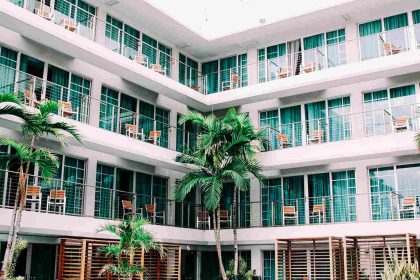Web accessibility is crucial for hotels looking to offer a quality experience for their guests. International tourism grew a remarkable 7% to reach a total of 1,322 million travelers, according to the United Nations World Tourism Organization’s, UNWTO, World Tourism Barometer. This growth stimulates economic development as tourism is, “…essential for job creation and the prosperity of communities around the world,” said UNWTO Secretary-General Zurab Pololikashvili.
Achieving website ADA compliance is necessary for the would-be travelers looking to search for information and book from their smartphones and laptops. People with disabilities use assistive technologies to look for hotel websites, and so, their sites fully compatible with these technologies. Hotel websites also need to be designed and maintained in a way that ensures all guests can conduct necessary booking, transactions, and travel planning completely hassle-free.
Hotel Website Accessibility Checklist
Open Doors Organization (ODO), a Chicago-based non-profit group that educates the travel and tourism industries about the needs of people with disabilities, has conducted surveys showing that the majority of people with disabilities experience barriers when they travel. When users with a disability go online they may or may not (depending on accessibility) get the travel information they need. Some hotel website functionality barriers include inaccessible:
- Rich content
- Images
- Videos
- Booking
- Forms
- Deals + Specials
- Site navigation
Hotel Website ADA Compliance Lawsuits
Users with a disability can bring a civil rights action against a hotel for their failure to design, construct, maintain, and operate their website to be fully accessible to and independently usable by persons with a disability. In not doing so, the hotel can be held for denying full and equal access to their website.
A 2010 U.S. Census Bureau report approximated 8.1 million people in the United States are visually impaired, including 2 million who are blind, and is expected to have increased since. A customer that is visually-impaired or legally blind requires the assistance of screenreading software to read website content. In the wave of technological advances in recent years, assistive computer technology is an increasingly prominent part of everyday life. It allows blind and visually-impaired persons to fully and independently access a variety of services.
Hotel websites can contain thousands of access barriers that make it difficult if not impossible for customers who are blind and visually-impaired to use the website. This excludes users with a disability from the full and equal participation in the growing Internet economy that is an increasingly common part of daily living.
There are readily available accessible technologies that heavily trafficked hotel websites use, such as alternative text, accessible forms, descriptive links, resizable text and limits the usage of tables and JavaScript. When a hotel decides to use an exclusively visual interface, persons who are blind or visually impaired need to rely on sighted companions to assist them. A hotel failing to make their hotel website accessible to blind persons violates basic equal access requirements under both state and federal law.
Check out these hotel website lawsuits:
